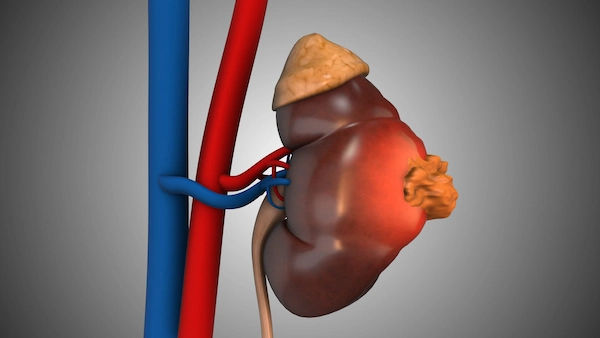Guide to Screening Kidney Cancer
Learn the essentials of kidney cancer screening, including risk factors, diagnostic tools, and when to talk to your doctor about testing. Get the guide now.

Written by Dr. Md Yusuf Shareef
Reviewed by Dr. D Bhanu Prakash MBBS, AFIH, Advanced certificate in critical care medicine, Fellowship in critical care medicine
Last updated on 13th Jan, 2026
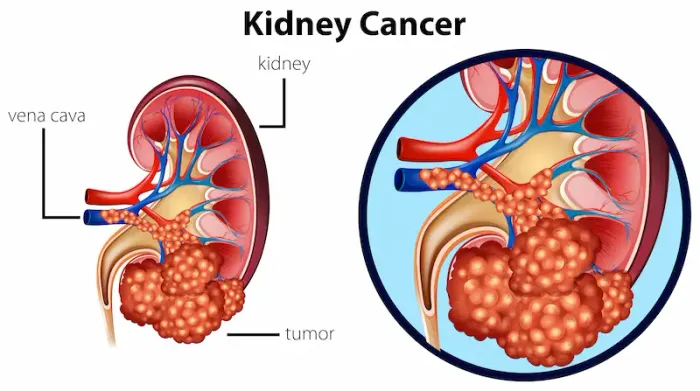
Introduction
Catching cancer early is one of the most powerful ways to improve the chances of successful treatment. But when it comes to kidney cancer, the conversation around screening isn't as straightforward as it is for breast or colon cancer. Many people are unaware of their risk or the subtle signs their body might be sending. This guide is designed to demystify kidney cancer screening. We'll walk you through who is most at risk, what screening involves, and the critical difference between waiting for symptoms and being proactively screened. Our goal is to empower you with the knowledge to have an informed conversation with your doctor, because when it comes to your health, knowledge isn't just power—it's prevention.
Understanding Kidney Cancer: The Basics
Before diving into screening, it's helpful to understand what we're dealing with. Your kidneys are two bean-shaped organs, each about the size of a fist, located behind your abdominal organs on either side of your spine. They are your body's master filtration system, removing waste and excess fluid from your blood to create urine.
What Are the Kidneys and What Do They Do?
The kidneys are hardworking organs that perform several vital jobs beyond just making urine. They help control blood pressure, ensure your body has the right amount of red blood cells by producing a hormone called erythropoietin, and maintain a healthy balance of minerals like sodium and potassium. When kidney cancer develops, it typically starts in the lining of the tiny tubes inside the kidneys (tubules). The most common type in adults is renal cell carcinoma (RCC).
Common Types of Kidney Cancer
While Renal Cell Carcinoma (RCC) accounts for about 90% of cases, there are other, less common types. Transitional cell carcinoma affects the renal pelvis (where the kidney meets the ureter). Wilms' tumor is a type of kidney cancer almost exclusively seen in children. Understanding the type is crucial for determining the best treatment approach, which is why an accurate diagnosis is so important.Consult Top Specialists
The Critical Difference: Symptoms vs. Screening
This is the most important concept to grasp. In its early stages, kidney cancer is often a "silent" disease. It may cause no signs or symptoms at all. This is why understanding screening is so vital.
Recognizing the Warning Signs of Kidney Cancer
As a tumor grows, symptoms may begin to appear. It's essential to listen to your body and not ignore these potential early signs of kidney cancer:
1. Blood in the urine (hematuria): This may be visible (pink, red, or cola-colored) or detectable only under a microscope.
2. Persistent pain in your side or lower back: Not just a momentary twinge, but a constant ache.
3. A lump or mass in the side or abdomen.
4. Unexplained weight loss.
5. Loss of appetite.
6. Fever that isn't due to an infection and doesn't go away.
Important Note: If you experience any of these symptoms, especially blood in the urine, it is crucial to consult a doctor promptly. If symptoms persist beyond two weeks, consult a doctor online with Apollo 24|7 for further evaluation.
Why Screening is Proactive, Not Reactive?
Screening is for people who have no symptoms. It's a proactive step taken because an individual has known risk factors. The goal of screening is to find cancer at such an early stage that it's highly treatable, often before it has had a chance to spread. Relying solely on symptoms means the cancer may already be more advanced by the time it's discovered.
Who is at High Risk for Kidney Cancer?
Not everyone needs to be screened for kidney cancer. Screening recommendations are targeted at those with elevated risk. This is where a personalized risk assessment becomes key.
Key Risk Factors You Can't Change
Some factors are beyond our control, but knowing about them helps you and your doctor make informed decisions.
• Age: The risk increases with age, with most cases diagnosed in people over 65.
• Genetics and Family History: Having a first-degree relative (parent, sibling, or child) with kidney cancer increases your risk. Certain inherited syndromes, like von Hippel-Lindau disease, also significantly raise risk.
Lifestyle and Health-Related Risk Factors
These are the areas where you can take action to reduce your risk.
• Smoking: Smokers have a greater risk than nonsmokers. The risk decreases after quitting.
• Obesity: Excess weight causes changes in hormones that can increase the risk of renal cell carcinoma.
• High Blood Pressure (Hypertension): The link is well-established, though it's unclear if the condition itself or the medication used to treat it is the primary factor.
• Long-Term Dialysis: People on dialysis for chronic kidney failure have a higher risk.
• Workplace Exposures: Certain chemicals, like asbestos and cadmium, may increase risk.
Current Kidney Cancer Screening Guidelines and Tests
Unlike some cancers, there is no universal recommendation for the general public to get routine kidney cancer screening. This is because widespread screening in low-risk people hasn't been proven to save lives and can lead to unnecessary tests and anxiety. However, for high-risk individuals, the conversation is different.
Imaging Tests: Ultrasound, CT, and MRI Scans
If you and your doctor decide screening is appropriate, it will likely involve imaging.
• Ultrasound: This is often a first step. It's non-invasive, uses sound waves, and is excellent at distinguishing solid tumors from simple fluid-filled cysts. Many people wonder, "can an ultrasound detect kidney cancer?" The answer is yes, it is a very effective tool for identifying suspicious masses.
• CT Scan (Computed Tomography): This provides a more detailed, 3D image and is the gold standard for diagnosing and staging kidney cancer. It can show the size, shape, and position of a tumor and whether it has spread.
• MRI (Magnetic Resonance Imaging): This may be used if more detail is needed about the blood vessels around the kidney or if a patient can't have a CT scan.
Urine and Blood Tests: What Can They Tell Us?
While there is no single blood test that diagnoses kidney cancer, tests can provide clues. A urinalysis can detect microscopic blood. Blood tests can check kidney function (creatinine levels) and for anemia, which can sometimes be associated with the disease. Apollo24|7 offers convenient home collection for tests like these to help monitor your baseline health.
A Proactive Plan: When to Talk to Your Doctor About Screening
The most important step is to start a conversation. If you have several of the risk factors mentioned above, particularly a strong family history combined with lifestyle factors, it's time to talk to your doctor.
Creating a Personalized Risk Assessment
Schedule an appointment to discuss your concerns. Be prepared to share your complete family health history and your own lifestyle habits. Your doctor can help you understand your personal risk and whether a screening plan, such as a periodic ultrasound, makes sense for you. This is a collaborative decision.
Beyond Screening: Steps for Kidney Cancer Prevention
While not all cases are preventable, you can significantly reduce your risk by adopting healthy habits. How to prevent kidney cancer often aligns with overall wellness:
1. Don't smoke. If you do, seek help to quit.
2. Maintain a healthy weight.
3. Control high blood pressure through diet, exercise, and medication if prescribed.
4. Eat a diet rich in fruits and vegetables.
Conclusion
Navigating the world of cancer screening can feel overwhelming, but understanding your relationship with kidney cancer puts you in the driver's seat of your health. This guide has equipped you with the knowledge about risk factors, the importance of early detection, and the difference between proactive screening and reactive symptom-checking. Remember, you don't have to have all the answers. The most powerful next step is to use this information to start a dialogue with a healthcare provider. If you have concerns about your risk factors, book a physical visit to a doctor with Apollo24|7 to create a personalized health plan. By being proactive, you are taking the single most important step toward protecting your health and ensuring peace of mind.Consult Top Specialists
Consult Top Specialists
Dr Rakesh Ram
General Physician/ Internal Medicine Specialist
4 Years • MBBS, MD (INTRNAL MEDICINE)
Secunderabad
Apollo Hospitals Secunderabad, Secunderabad
Dr. Sagarika Nanda
Infectious Disease specialist
9 Years • "• Fellowship of National Board Infectious Diseases Apollo Hospitals Jubilee Hills 2022 • MD General Medicine KMC Manipal 2013 • MBBS & Internship KMC Manipal 2003 -2009"
Hyderabad
Apollo Hospitals Financial District, Hyderabad

Dr. Ramya Hari
General Practitioner
18 Years • Medical Head & Family Physician, DG Shipping Approved Doctor, Panel Physician - UK Visa Medicals
Chennai
Apollo Medical Centre Kotturpuram, Chennai
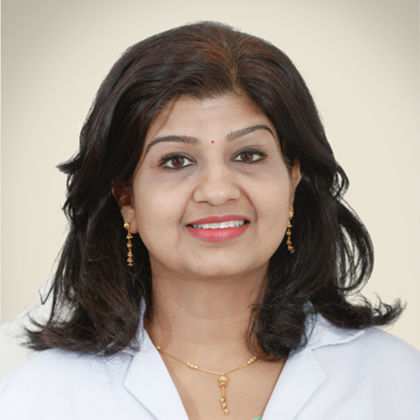
Dr. Rama Narasimhan
General Physician/ Internal Medicine Specialist
20 Years • MBBS, MD
Chennai
Apollo Hospitals Greams Road, Chennai

Dr Vinay Kumar A V
Nephrologist
8 Years • MBBS, MD - General Medicine, DM - Nephrology
Bilaspur
Apollo Hospitals Seepat Road, Bilaspur
Consult Top Specialists
Dr Rakesh Ram
General Physician/ Internal Medicine Specialist
4 Years • MBBS, MD (INTRNAL MEDICINE)
Secunderabad
Apollo Hospitals Secunderabad, Secunderabad
Dr. Sagarika Nanda
Infectious Disease specialist
9 Years • "• Fellowship of National Board Infectious Diseases Apollo Hospitals Jubilee Hills 2022 • MD General Medicine KMC Manipal 2013 • MBBS & Internship KMC Manipal 2003 -2009"
Hyderabad
Apollo Hospitals Financial District, Hyderabad

Dr. Ramya Hari
General Practitioner
18 Years • Medical Head & Family Physician, DG Shipping Approved Doctor, Panel Physician - UK Visa Medicals
Chennai
Apollo Medical Centre Kotturpuram, Chennai

Dr. Rama Narasimhan
General Physician/ Internal Medicine Specialist
20 Years • MBBS, MD
Chennai
Apollo Hospitals Greams Road, Chennai

Dr Vinay Kumar A V
Nephrologist
8 Years • MBBS, MD - General Medicine, DM - Nephrology
Bilaspur
Apollo Hospitals Seepat Road, Bilaspur
More articles from Kidney Cancer
Frequently Asked Questions
1. Can a blood test detect kidney cancer?
There is no single blood test that can diagnose kidney cancer. However, blood tests can reveal important clues, such as abnormalities in kidney function (high creatinine levels) or anemia, which may prompt your doctor to order more specific imaging tests like an ultrasound or CT scan.
2. What is the survival rate for kidney cancer if caught early?
The prognosis for early-stage kidney cancer is very good. When the cancer is localized (confined to the kidney), the 5-year survival rate is very high, often over 90%. This highlights the critical importance of early detection through awareness and, for high-risk individuals, discussing screening options.
3. Are kidney cysts the same as cancer?
No, most kidney cysts are simple, fluid-filled sacs that are benign (non-cancerous) and very common as people age. However, some complex cysts with solid components need to be monitored closely as they can be cancerous. An ultrasound or CT scan can usually distinguish between a simple cyst and a suspicious mass.
4. I have a family history of kidney cancer. What should I do?
You should inform your primary care doctor about your family history. They may refer you to a genetic counselor or a urologist to discuss your specific risk. Based on the strength of your family history, they can advise if and when you should consider periodic screening imaging.
5. What are the symptoms of kidney cancer in females?
The symptoms of kidney cancer in females are generally the same as in males: blood in the urine, persistent back or side pain, a lump, unexplained weight loss, and fever. There are no symptoms unique to women.
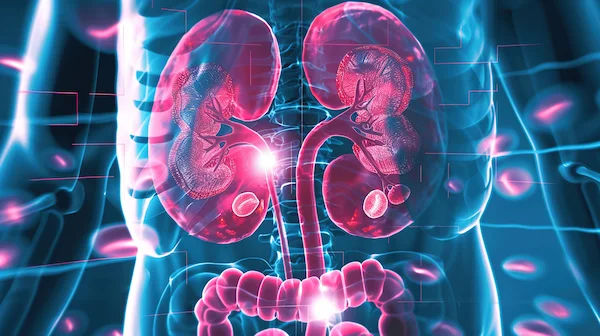
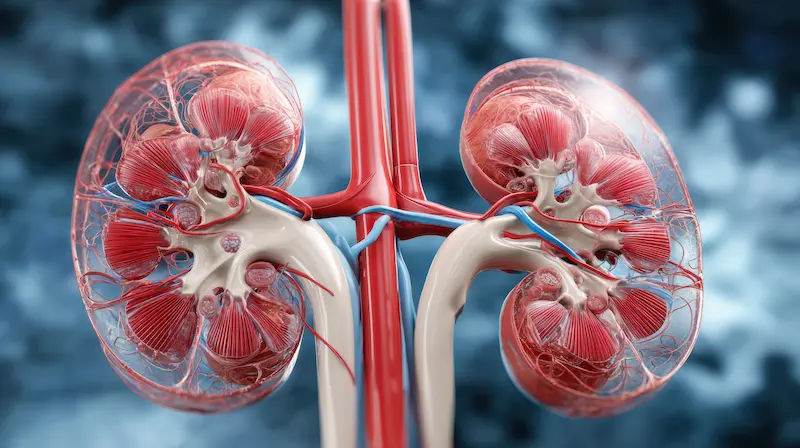
.webp)

